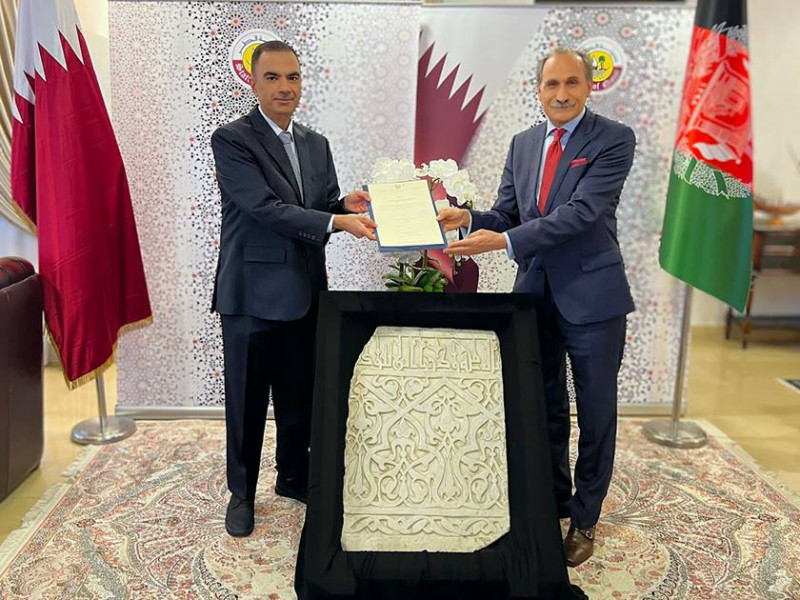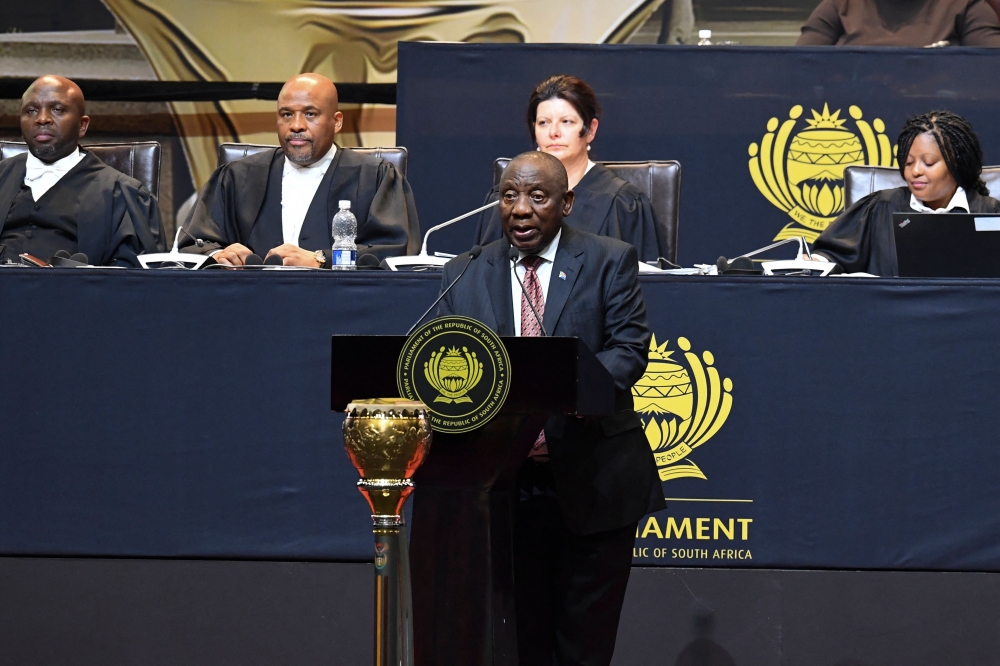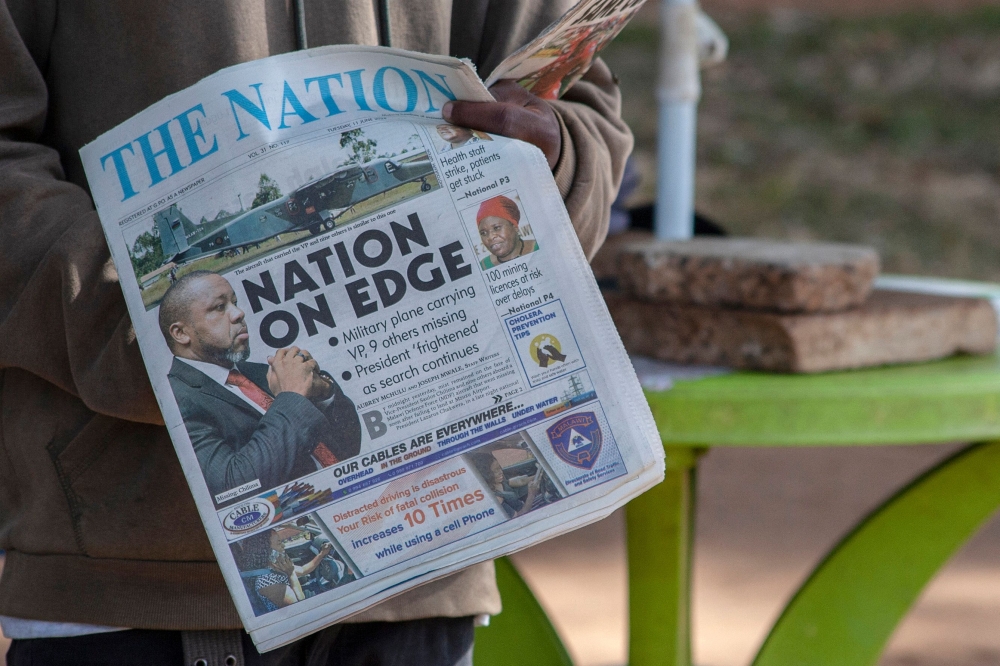The tablet serves as one of the earliest examples of the use of Arabic in architectural design, inspired by the Persian language, or Farsi.
Qatar has returned a historic Afghan artefact to Kabul that was initially purchased by Malaysia’s Islamic Arts Museum from an English dealer, Doha’s news agency (QNA) reported on Wednesday.
Afghanistan’s Ambassador to Malaysia Moheb Rahman Spinghar handed the artefact to Qatar’s Ambassador to Malaysia Fahad Kafood to deliver it to its final destination through Doha.
Belonging to the National Museum of Afghanistan, the historic piece is a marble tablet dating back to the 12th century, displaying floral kufic inscriptions and cultural patterns. The piece decorated the residence of King Mahmud of Ghazni and the royal court of King Mas’ud III of Ghazni (1061-1115).
The tablet also serves as one of the earliest examples of the use of Arabic in architectural design, inspired by the Persian language, or Farsi. During the Afghan civil war in 1992, some 100 Ghazni marbles vanished from the country.
Qatar’s role in retrieving the artefact for return to its home comes as part of Doha’s global efforts to ensure the protection and preservation of historic pieces, as per its membership with the World Heritage Committee.
In 2014, Qatar pledged $10 million as part of a memorandum of understanding (MoU) signed with UNESCO to support its programme for the protection of cultural and natural heritage in emergency situations.
“This contribution is a direct response to the destruction of cultural heritage in times of conflict, and I take this as a call for all Member States and partners to join forces to halt cultural cleansing,” said UNESCO Director General Irina Bokova, said at the time.
The Gulf state has also been working on preserving local heritage sites in collaboration with UNESCO, including the Al Zubarah site.
Looted artefacts
In addition to the loss of innocent lives, conflict-ridden countries regularly face theft of cultural and heritage artefacts.
In Afghanistan, artefacts that are as old as 1,800 years have been looted, with many being sold in western markets between the 1990’s and 2000’s, according to a New York Times (NYT) report.
British Museum curator St John Simpson told the American news outlet that all of the artefacts were illegally exported or stolen. In April last year, 33 stolen antiques worth $1.8 million were returned to Afghanistan through then-Afghan Ambassador to the US Roya Rahmani.
The returned pieces were part of 2,500 others valued at $143 million, found in various raids between 2012 and 2014 targeting Subhash Kapoor, who the NYT said is a disgraced Manhattan art dealer.
Kapoor is currently in Indian prison for theft.
Meanwhile, an Iraqi court earlier this month sentenced retired British geologist Jim Fitton to 15 years for intentionally smuggling artefacts dating older than 200 years out of Baghdad.
The British national was arrested in March at the Baghdad airport upon discovery of items in his luggage.
In 2019, the British Museum also announced plans to return 154 Mesopotamian cuneiform tablets to the National Museum of Iraq in Baghdad that were taken in 2011.

















Leave a Reply